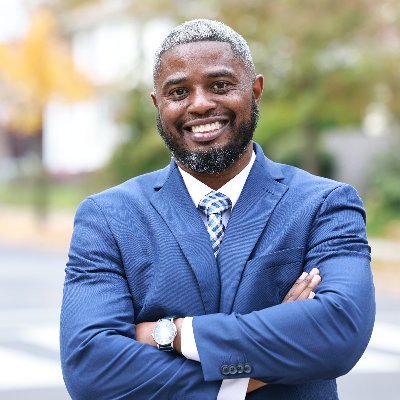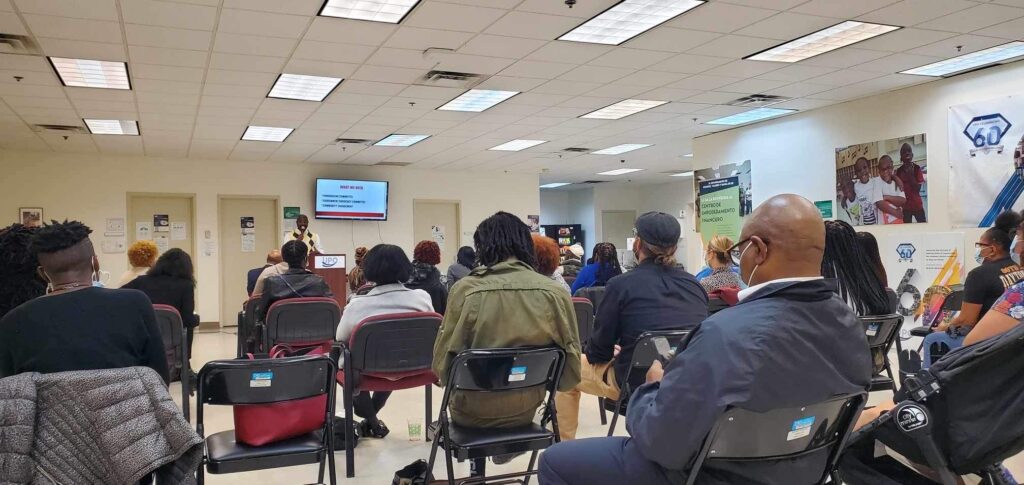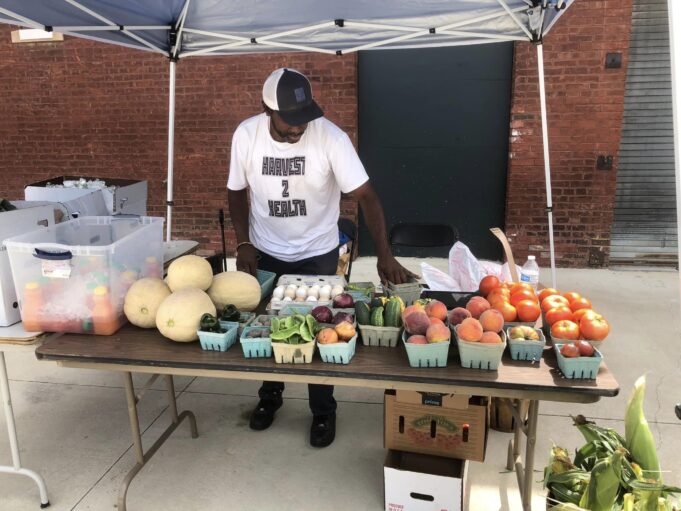WASHINGTON—In the nation’s capital where yearly incomes in one part of the city are as high as $157,000 and another part as low as $47,000, buying food is less about money and more about access. Ward 3 with the higher incomes has 14 grocery stores while East of the Anacostia River in the poorer parts of town there is only one grocery store. The residents are food insecure. Higher incomes translate to more options for food and lower incomes mean the opposite.
Salim Adofo, chairman of the Advisory Neighborhood Commission 8C, wants to change that. He recently held a community meeting to hear concerns and offer solutions. Commissioner Adofo has partnered with the Ward 8 Farmers Market to increase the market’s capacity and address food insecurity.
“Access to quality food, fresh fruits and vegetables, is not only a public health issue, it is a public safety issue, and it is an economic development issue. By expanding the Ward 8 Farmers Market, food insecurity can be addressed, as well as opportunities for local businesses,” he told The Final Call. The community meeting was held October 18 at the UPO Petey Greene Community Service Center.

“With an expanded farmers market, residents can find a consistent array of affordable fresh food vendors, and residents who receive SNAP Benefits (food stamps) have the opportunity to purchase twice as much food as they would have been able to purchase in a traditional grocery store, for the same price,” Commissioner Adofo added.
The U.S. Department of Agriculture defines food insecurity as the lack of access to nutritionally adequate and safe food. This condition describes East of the river which according to city data, is home to 85,000 people. The lack of access to healthy and affordable food places a burden on health and public safety.
The 2023 Capital Area Food Bank Hunger Report found that nearly a third of residents across the D.C. metro area are food insecure. The report surveyed nearly 5,300 residents to understand food insecurity. It found those hardest hit by the impacts of COVID-19 have continued to be weighed down by the combined forces of a slow economic recovery; near-record levels of inflation;
And the end of enhanced federal benefit programs that sustained thousands of families and individuals. The East of the river community is additionally burdened with the lack of full-service grocery stores. This has led to a greater dependence on government benefits for food access.
“While signs of improvement seem to be everywhere in our economy over the past 12 months, there’s a far different story unfolding for over a million of our neighbors,” said Radha Muthiah, president and CEO of the Capital Area Food Bank. “This year’s Hunger Report makes clear that food insecurity and economic inequity are still enormous problems in our area. Every sector in our region has a role to play in addressing this ongoing crisis, both in the short and longer term, to create more opportunity and brighter futures for our community.”
Data from the report found that: Approximately half of Black and Hispanic respondents screened as food insecure, compared to only 14 percent of White respondents. Households with children are more likely to experience food insecurity: Households with children are 60 percent more likely to be affected by food insecurity than households without children.
For many food-insecure households with children, the adults screened as food insecure but the children themselves did not, suggesting adults are prioritizing feeding the children first and—at least some of the time—sacrificing their own food to do so.

Holly Muhammad is the Advisory Neighborhood Commissioner 8A and former manager of the Ward 8 Farmers Market and supports its expansion. She also wants to see another farmers markets brought to her section of the city.
“The challenge is finding space to accommodate the farmers market and has parking. We don’t have the services in our ward to not be able to drive. We have to drive to the supermarket. We don’t have a grocery store down the block that we can bike or walk to,” she told The Final Call.
“The ward is full of families. When they go grocery shopping, they’re buying for three, four sometimes five people. Nobody can carry all that on a bike. Often, they have their children with them. This ain’t Ward four, this isn’t Ward two and it isn’t Ward three,” she said.
“We have food insecurity. We need vehicles to feed ourselves because we have to travel out of our ward for every service that we need,” Commissioner Muhammad continued. “Hopefully by next season we can have another farmers market to service this community.”
Norman Henderson is a senior citizen who lives in Ward 8. He told The Final Call, “We’ve complained to the city about the lack of grocery stores in Ward 8 for the longest time. They responded by redistricting the area to include more grocery stores but didn’t open any new stores. But East of the river remains the same with just one grocery store. Most people drive to Maryland or Virginia to shop. Expanding the farmers market is a good idea.”













